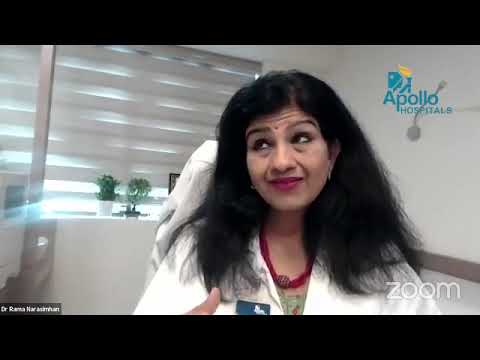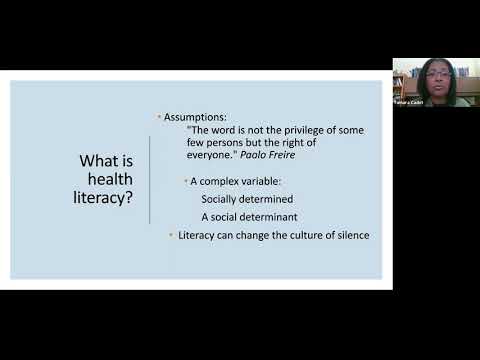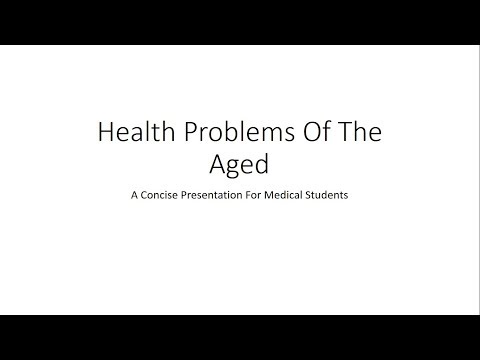Health Checkup for the Elderly: What to Expect
Contents [show]
As people age, it’s important to have regular health checkups to ensure that they are staying healthy and to catch any potential problems early. Here’s what you can expect from a health checkup for the elderly.
Checkout this video:
Introduction
As people age, their health needs change. They are more likely to have chronic conditions, such as heart disease, stroke, diabetes, cancer, and Alzheimer’s disease. They also are more likely to take more than one medicine. To stay healthy and independent, older adults need to pay attention to their health and see their health care provider for regular checkups.
During a health checkup, a Health Care provider will:
-Take your medical history
-Do a physical exam
-Give you any needed immunizations (shots)
-Order or give you tests, if needed
-Help you stay up-to-date on screenings (tests to find disease early)
-Talk with you about healthy eating and physical activity habits
-Talk with you about any medicines you take and whether you are taking them safely and correctly
-Discuss your mental health and well-being
The Importance of Health Checkups for the Elderly
As we age, our bodies go through changes that can affect our health and well-being. It’s important to have regular checkups with a doctor or other health care provider so that he or she can monitor these changes and look for any problems.
Health checkups for the elderly are important because they can help detect:
-Chronic conditions such as diabetes, high blood pressure, heart disease, and arthritis
-Cancers at an early stage when they are most treatable
-Risk factors for falls and other accidents
-Changes in mental status or mood that could be early signs of dementia or depression
During a health checkup, your health care provider will likely ask you about your medical history and any medications you are taking. He or she will also perform a physical exam. Depending on your age, health, and family history, you may also need tests such as blood work, a cholesterol panel, or a mammogram.
If you are over the age of 50, it’s recommended that you have a colonoscopy every 10 years to screen for colon cancer. You may also need other screenings depending on your individual risk factors.
It’s important to keep up with your health checkups as you age so that any problems can be detected and treated early. If you have any concerns about your health, don’t hesitate to talk to your health care provider.
What to Expect During a Health Checkup for the Elderly
As people age, it is important to be proactive about their health and to monitor their health closely. A health checkup for the elderly is a great way to do this.
During a health checkup for the elderly, the doctor will likely ask about any changes in the person’s health, medications, and lifestyle habits. The doctor will also perform a physical examination. This may include checking the person’s blood pressure, heart rate, and weight. The doctor may also listen to the person’s heart and lungs and feel their abdomen.
The doctor may also order some tests during the health checkup. These tests can help to identify any underlying health problems For example, the doctor may order a blood test to check for anemia or a cholesterol test to check for heart disease. The doctor may also order a urine test or a chest x-ray.
It is important to be honest with the doctor during the health checkup. Be sure to tell the doctor about any pain, fatigue, or other symptoms that you are experiencing. It is also important to let the doctor know about any medications that you are taking or any lifestyle changes that you have made recently.
The Benefits of Health Checkups for the Elderly
As people age, their risk for developing chronic diseases such as heart disease, stroke, cancer, and diabetes increases. Regular health checkups can help identify these conditions early, when they are most treatable. Health checkups can also detect other health problems that may not have symptoms, such as high blood pressure or high cholesterol.
In addition to detecting health problems early, health checkups can also help the elderly manage chronic conditions and prevent complications. For example, people with diabetes who have regular health checkups are less likely to develop complications such as kidney disease or nerve damage. Regular health checkups can also help the elderly stay up to date on immunizations and screenings for cancer and other conditions.
Health checkups are an important part of preventive care for the elderly. They can help detect health problems early and prevent complications from chronic conditions. If you are over the age of 65, be sure to schedule a health checkup with your doctor today.
The Risks of Health Checkups for the Elderly
As people live longer and longer, health checkups for the elderly are becoming more and more common. But what are the risks of these checkups?
First of all, it’s important to understand that most health checkups for the elderly are completely safe. However, there are some risks associated with them.
One of the biggest risks is that the elderly person may not be able to handle the cognitive and emotional stress of the checkup. This can lead to anxiety, confusion, and even depression.
Another risk is that the elderly person may not be able to physically handle the checkup. This can lead to a fall or other injury.
Finally, there is always the risk that something could be found during the checkup that requires further treatment. This could be anything from a minor condition to a serious illness.
Despite these risks, health checkups for the elderly are still important. They can help catch problems early, before they become serious. They can also help monitor existing conditions and make sure they’re being properly treated.
If you’re considering a health checkup for an elderly loved one, talk to their doctor first. They can help you weigh the risks and benefits and determine if it’s right for them.
How to Prepare for a Health Checkup for the Elderly
If you are over the age of 65, it is important to have a health checkup at least once a year. This is because as we get older, our bodies become more vulnerable to disease and health problems. A health checkup can help catch problems early, before they become serious.
There are a few things you can do to prepare for a health checkup. First, make sure to schedule the appointment with your primary care physician. You may also need to see a specialist, depending on your health history and current health condition. If you have any recent test results or medical records bring them with you to the appointment.
Be prepared to discuss your medical history with your doctor. This includes any chronic conditions you have, such as heart disease, diabetes, or high blood pressure. Tell your doctor about any medications you are currently taking, as well as any allergies you have. If you have had any recent changes in your health, such as weight loss or gain, new onset of fatigue or pain, or changes in your sleep patterns, make sure to mention these to your doctor.
Your doctor will likely perform a physical exam during the checkup. This will include checking your vital signs (blood pressure, heart rate, and respiratory rate), as well as doing a general exam of your body. They will also likely order some routine lab tests, such as a complete blood count (CBC) and basic metabolic panel (BMP). These tests can help give an overall picture of your health and may help detect early signs of disease.
Preparing for a health checkup may seem like a lot of work, but it is important to take care of yourself as you age. By being prepared and working with your doctor, you can help ensure that you stay healthy and catch any problems early on.
What to Do After a Health Checkup for the Elderly
After a health checkup for the elderly, it is important to take some time to review the results with your doctor. This is especially important if any problems were found. Your doctor can help you understand what the results mean and what you should do next.
Be sure to ask your doctor about any test results that you do not understand. It is also important to make sure that you understand all of the recommendations that your doctor makes. You may want to ask your doctor to write down the recommendations so that you can refer to them later.
If your health checkup reveals any problems, be sure to follow your doctor’s recommendations for treatment. If you have any questions or concerns about the recommended treatment, be sure to discuss them with your doctor.
The Bottom Line
As people age, they are at greater risk for developing health problems. To help identify these problems early, it is recommended that people over the age of 65 get a regular health checkup.
During a health checkup for the elderly, a doctor will likely ask about the person’s medical history and current health concerns The doctor may also perform a physical examination and order tests to check for certain conditions, such as heart disease, diabetes, and osteoporosis.
While the specifics of a health checkup may vary depending on the individual’s age and health status, there are some common tests and procedures that are typically included. These may include blood pressure and cholesterol checks, vision and hearing tests, vaccinations, and screenings for cancer and cognitive decline.
A health checkup can help catch problems early and prevent them from becoming more serious. It is important to talk to your doctor about any concerns you have and to make sure you understand all of the tests and procedures that will be performed.
FAQs
Q: How often should I get a health checkup?
A: Checkups are important at any age, but as you get older, you may need to see your doctor more frequently. The American Geriatrics Society (AGS) recommends that healthy adults age 65 and older have a health checkup at least once every 3 years. However, if you have a chronic health condition or other risk factors, you may need to be seen more often.
Q: What should I expect during a health checkup?
A: A complete health checkup generally includes a physical exam, measurements of height, weight, and blood pressure, and tests of hearing and vision. Your doctor may also order blood tests and other diagnostic tests. Depending on your age and health history, your doctor may recommend additional screenings, such as cancer screenings or screenings for diabetes or high cholesterol.
Q: What can I do to prepare for my health checkup?
A: Be sure to schedule your appointment in advance so that you have time to prepare. Make a list of any concerns or questions that you want to discuss with your doctor. If you are due for any screenings or vaccinations, be sure to schedule those in advance as well. And finally, be sure to bring along any medications that you are currently taking, in their original bottles.
Resources
There are a number of organizations that offer health checkups for the elderly. Some of these organizations include the American Geriatrics Society, the National Institute on Aging, and the National Council on Aging.







